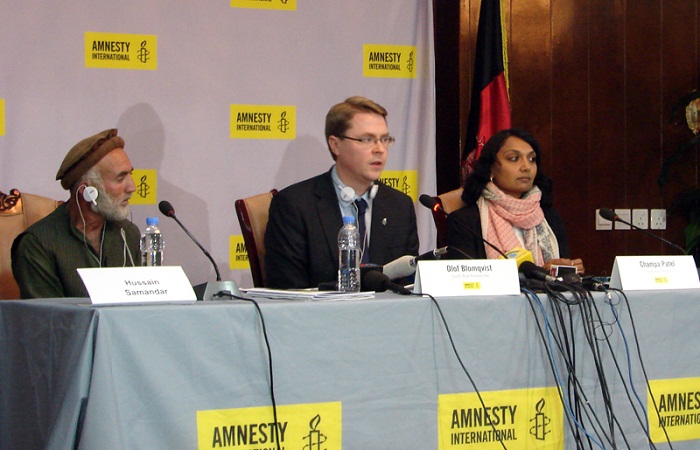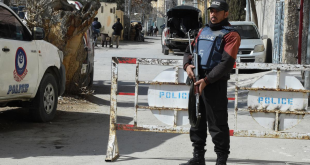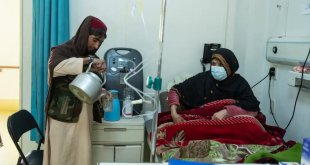AT-KABUL: Amnesty International said Tuesday in a report that the number of Afghans displaced by violence and poverty has dramatically doubled over the past three years.
A staggering 1.2 million people were internally displaced in Afghanistan, a dramatic increase from some 500,000 in 2013.
Amnesty International’s new report, ‘My Children Will Die This Winter’ Afghanistan’s Broken Promise to the Displaced, casts fresh light on the country’s forgotten victims of war who have fled their homes but remain displaced within the country’s borders.
“While the world’s attention seems to have moved on from Afghanistan, we risk forgetting the plight of those left behind by the conflict,” said Champa Patel, South Asia Director at Amnesty International.
“Even after fleeing their homes to seek safety, increasing numbers of Afghans are languishing in appalling conditions in their own country, and fighting for their survival with no end in sight.”
Amnesty International’s research found that despite the promises made by successive Afghan governments, internally displaced people (IDPs) in Afghanistan continue to lack adequate shelter, food, water, health care, and opportunities to pursue education and employment.
“Even an animal would not live in this hut, but we have to,” Mastan, a 50-year-old woman living in a camp in Herat, told Amnesty International. “I would prefer to be in prison rather than in this place, at least in prison I would not have to worry about food and shelter.”
Their situation has dramatically worsened over the past years, with less aid and essentials like food available. A new National IDP Policy launched in 2014 could be a lifeline to those displaced but has hardly been implemented at all – stymied by alleged corruption, lack of capacity in the Afghan government and fading international interest, the report added.
Despite Afghan authorities promising to improve the conditions IDPs are living in, Amnesty International found that forced evictions – from both government and private actors – is a daily threat.
On 18 June 2015, the first day of Ramadan, a group of armed men in military style threatened to bulldoze shelters at the Chaman-e-Babrak camp in Kabul. An elderly man protested the attempted forced eviction, appealing to nearby police officers to halt the bulldozing. He was beaten by the armed men, triggering a demonstration.
In response, residents said that police and the armed men opened fire on the IDPs, killing two people and injuring 10. One of the injured was a 12-year-old boy. No investigation was carried out and no one has been held to account.
Most IDP communities lack access to basic health care facilities. With only mobile clinics, operated by NGOs or the government, occasionally available, IDPs are often forced to seek private health care that they cannot afford.
“If we are ill, then I have to beg and find some money to go to the private clinics,” one 50-year-old woman in Herat told Amnesty International. “We have no other choice.”
As people without any stable source of income, IDPs can find themselves burdened with large amounts of debt. In one case, a father told Amnesty International that he had to borrow 20,000 Afs (US$292) to pay for an operation for his son. “[This is] an enormous sum of money for us,” the father said.
Amnesty International is calling on the Afghan authorities and the international community to immediately ensure that the most urgent needs of those displaced are met. Furthermore, the Afghan government must make the implementation of the IDP Policy a priority, and ensure that enough resources are dedicated across the government to making it a reality.
Key international actors in Afghanistan must also do more to ensure that the human rights of those displaced are met, and lend more weight, expertise and resources to the implementation of the IDP Policy, reported AI.
“All parties that have been involved in Afghanistan over the past 15 years have a responsibility to come together and make sure that the very people the international community set out to help are not abandoned to an even more precarious fate,” said Champa Patel.
“Afghanistan and the world must act now to end the country’s displacement crisis, before it is too late.”
 Afghanistan Times
Afghanistan Times




